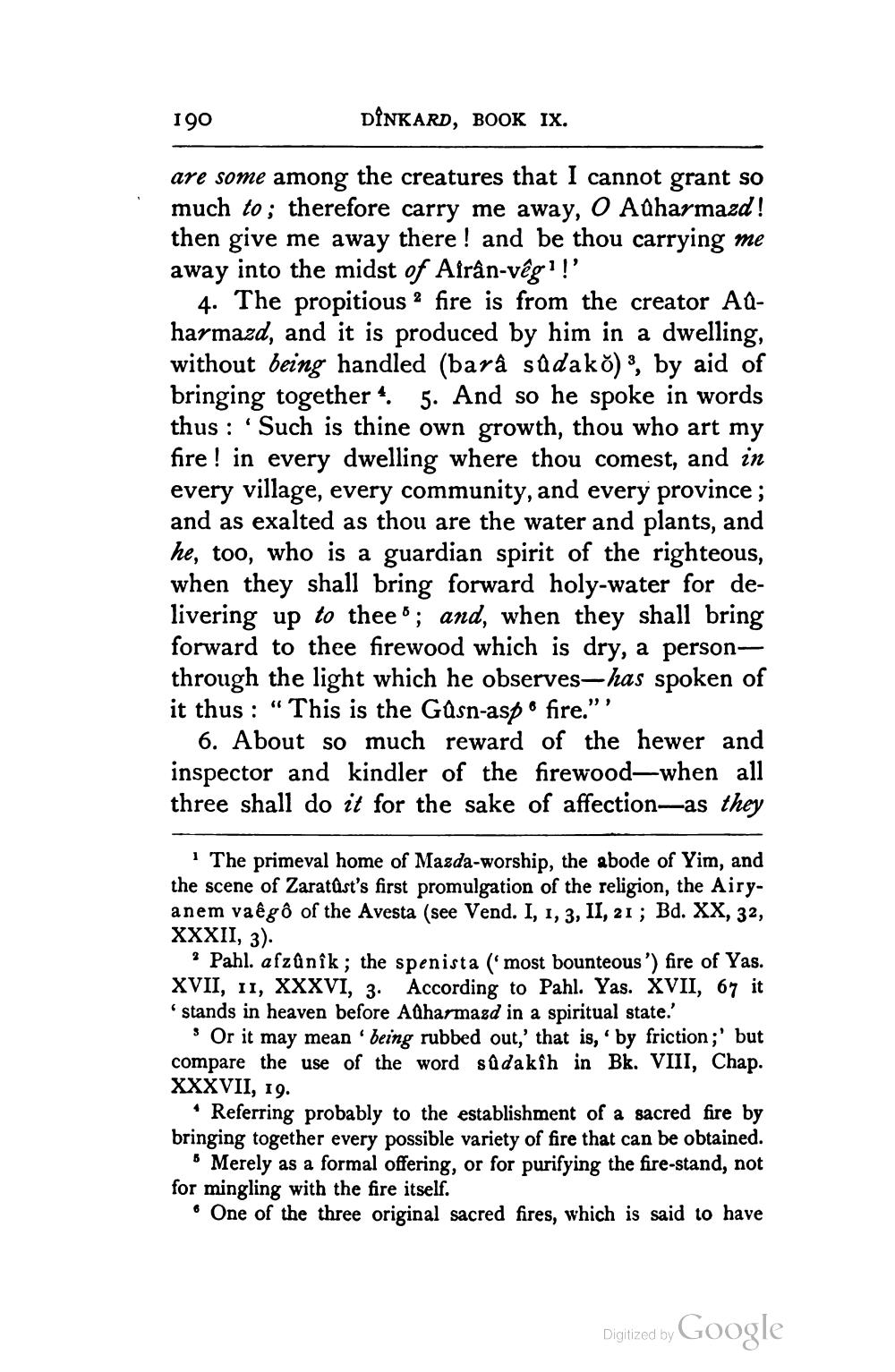________________
190
DÎNKARD, BOOK IX.
are some among the creatures that I cannot grant so much to; therefore carry me away, 0 Adharmazd! then give me away there ! and be thou carrying me away into the midst of Afrân-vég!'
4. The propitious ? fire is from the creator Adharmazd, and it is produced by him in a dwelling, without being handled (bara sadako) ?, by aid of bringing together 4. 5. And so he spoke in words thus : 'Such is thine own growth, thou who art my fire ! in every dwelling where thou comest, and in every village, every community, and every province; and as exalted as thou are the water and plants, and he, too, who is a guardian spirit of the righteous, when they shall bring forward holy-water for delivering up to thee 6; and, when they shall bring forward to thee firewood which is dry, a personthrough the light which he observes- has spoken of it thus : “This is the Güsn-aspo fire."
6. About so much reward of the hewer and inspector and kindler of the firewood—when all three shall do it for the sake of affection—as they
The primeval home of Mazda-worship, the abode of Yim, and the scene of Zaratûst's first promulgation of the religion, the Airyanem vaeg ô of the Avesta (see Vend. I, 1, 3, II, 21; Bd. XX, 32, XXXII, 3).
? Pahl. afzûnik; the spenista (most bounteous' fire of Yas. XVII, II, XXXVI, 3. According to Pahl. Yas. XVII, 67 it stands in heaven before Adharmazd in a spiritual state.
s Or it may mean being rubbed out,' that is, 'by friction;' but compare the use of the word sûdakih in Bk. VIII, Chap. XXXVII, 19.
Referring probably to the establishment of a sacred fire by bringing together every possible variety of fire that can be obtained.
• Merely as a formal offering, or for purifying the fire-stand, not for mingling with the fire itself.
. One of the three original sacred fires, which is said to have
Digitized by Google




